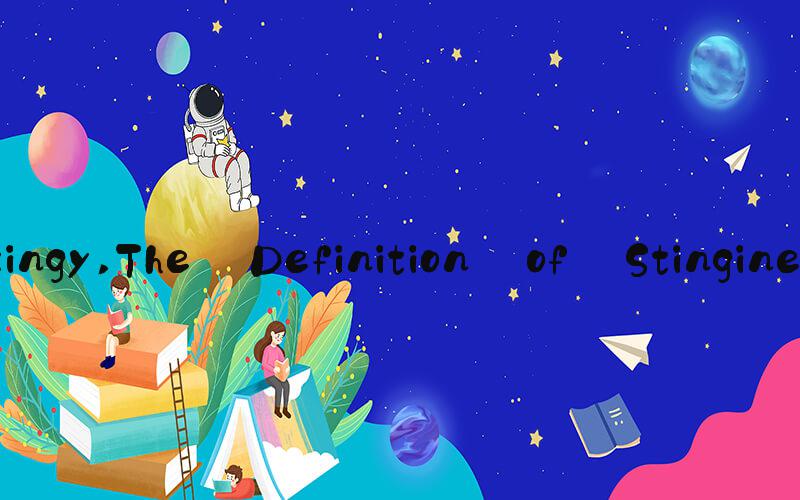 Stingy: A Flawed but Necessary Behavior?
Stingy: A Flawed but Necessary Behavior?Being labeled as "stingy" is often considered a negative trait. People who are stingy are often seen as selfish, ungenerous, and tight-fisted. However, some might argue that there is a certain value to this behavior, as it allows individuals to conserve their resources and prioritize their needs. In this article, we will explore the concept of stinginess, its effects on individuals and society, and whether this behavior is justified or not.
The Definition of StinginessBefore we delve into the topic, it is important to define what we mean by stinginess. According to the Cambridge English Dictionary, stinginess is "the quality of not liking to spend money," or "unwilling to give or spend much money." This definition implies that stinginess is primarily related to money, but it can also apply to other resources such as time, energy, and attention.
The Advantages and Disadvantages of StinginessStinginess, like any other behavior, has its advantages and disadvantages. On the one hand, being stingy can help individuals save money, avoid debt, and build a secure future for themselves and their families. Stingy people are often frugal and resourceful, finding innovative ways to make the most of what they have. They are also less likely to be taken advantage of by others, as they are careful with their resources and do not fall for scams or impulsive purchases.
On the other hand, being stingy can also have serious drawbacks. It can cause individuals to miss out on opportunities, experiences, and relationships that require investment. Stingy people may also come across as selfish, ungrateful, and unsupportive, damaging their social and professional lives. Furthermore, stinginess can lead to a lack of generosity, empathy, and compassion, which are essential qualities for building a harmonious and equitable society.
The Root Causes of StinginessStinginess is often viewed as a personality trait, but it is also influenced by external factors such as family upbringing, cultural norms, and socioeconomic status. People who grew up in financially unstable households, for example, may develop a scarcity mindset that makes them reluctant to spend money. Similarly, some cultures value thrift and austerity as virtues, leading people to prioritize saving over spending. Moreover, people who struggle with poverty or income inequality may feel the need to hoard their resources as a means of survival.
How to Overcome StinginessIf you find yourself being stingy, there are ways to overcome this behavior. The first step is to recognize why you are behaving this way and to challenge any negative beliefs or attitudes you may have about money or resources. You can also set financial goals and budgets to help you manage your resources and prioritize your needs. At the same time, it is important to be mindful of the benefits of generosity, such as building stronger relationships, improving mental health, and contributing to society. By practicing gratitude, empathy, and compassion, you can develop more positive qualities and behaviors that will serve you well in the long run.
ConclusionTo conclude, stinginess is a complex and multifaceted behavior that can have both positive and negative effects on individuals and society. While it is important to conserve resources and avoid wasteful spending, it is also essential to balance this with generosity, empathy, and compassion. By understanding the root causes of stinginess and practicing more positive behaviors, we can build a more harmonious and equitable world.
